Egyptian Twitter spiraled into controversy when content creator Ouda launched his original brand of hoodies, Oudies. What started as a whimsical challenge quickly escalated into heated arguments about class disparity – a historically contentious topic in Egypt, made more so by rising inflation.
The events leading up to the online debate began in December, when the influencer posted a series of TikTok interviews with local business owners, inviting viewers to answer the question: “Are local brands overpriced?”
Coupled with price comparisons of hoodies made by local and international brands, the series set the stage for a subsequent video in which Ouda shared a comment from one follower asking him to create his own brand of hoodies.
By the end of the 30-second clip, he had agreed to take on the challenge, and to do so in a record 21 days. His brand, he assured, would offer high quality products at fair prices.
Over the following weeks, he shared daily vlogs documenting the process. Viewers rallied in support, offering to assist with design and marketing, or even helping him source the right fabrics. Every step unfolded in conversation with Ouda’s followers, including the brand name “Oudies,” which they helped him select.
Ahead of its launch, Oudies was already trending on Twitter.
The support garnered through social media culminated in the brand’s launch event at Arkan Plaza in Sheikh Zayed. From this ensued a flood of high praise and equally sharp criticism.
The founder was applauded for his exceptional marketing skills and expert use of social media to generate customer loyalty and excitement. Customers were also impressed with the product itself, so popular that the business owner had to set a limit of one hoodie per person.
The oudies hoodies are actually fire
— sal’ (@SSalmaRreda) January 6, 2023
idc what everyone says, i just got the oudies hoodie and i actually love it bc the quality is fire and i love the design. Not just for its popularity or clout. But fr
— badawy (@unstablmariouma) January 12, 2023
whether you like the designs or not, oudies’ marketing strategy is superior. they’ve literally created a new path for marketing in egypt. hands down the most impressive launch i’ve seen from a local brand. all the hoodies and crewnecks sold out, which is enough proof le my tweet
— shabassy (@yshabassyy) January 6, 2023
Others, on the other hand, were less enthusiastic or felt that the hoodies had failed to live up to the hype.
oudies are mid as expected
— nour (@nourwedalma) January 6, 2023
Oudies were so overhyped for some reason.
— Sara (@preepurlur) January 9, 2023
Ouda shared words of gratitude for the supporters who helped him “make history” — a phrasing seen by many as controversial. He added that he welcomed constructive criticism, but not disrespect.
“It’s very easy to draw the line [between the two].” the entrepreneur told Egyptian Streets. To him, one key distinction is whether a comment includes any tangible feedback. In Ouda’s words, “Did I learn something from you? Is there any value in your tweet?”
He went on to cite messages from followers saying “I love the journey, I love the series, but I’m disappointed in the design” as ones he was happy to receive.
to those who helped us make history, you’re all absolute legends. you know that it was never only about hoodies. it was about so much more. we’ll make it right and we’ll be back as soon as we can. to those who showed love, i love you ❤️
— Ouda (@thisisouda) January 6, 2023
to the constructive criticism, acknowledged and appreciated. to the unnecessary disrespect, i’m empathetic. it’s clear you’re going through things. so i do pray you find better times. but know one thing, i can say that i made my parents fucking proud today. so i’ll sleep easy.
— Ouda (@thisisouda) January 6, 2023
Comments nonetheless grew harsher in tone when the entrepreneur posted another tweet asking critics to be mindful of the pressure that he and his team faced in creating their product.
a lot of people need to take it easy. we did our best day and night for 25 days. we forgot to eat. we forgot to sleep. we sacrificed everything. and so long as God wills it, we will always work towards greater heights. و الحمدلله ربنا كبير قوي..
— Ouda (@thisisouda) January 6, 2023
The bulk of criticism, however, had little to do with Ouda’s product. It arguably had less to do with him personally than with the archetype of wealth he had come to embody in his critics’ minds — a class of people some accuse of being so entrenched in privilege that they become blind to it.
In other words, Oudies and its founder became a vessel for people to express their anger at broader structures of class disparity in the country. This is evidenced by tweets such as the below mentioning the perceived attitudes of “privileged people” as a whole, rather than the entrepreneur in particular.
why r a lot of privileged people obsessed w/ proving that they suffered https://t.co/eaEDGy697g
— (@kemetdoll) January 7, 2023
كل ما بتطلع طبقه اجتماعيه كل ما بتنفصل عن الواقع اكيد https://t.co/hZjOlsf4KM
— ران (@ron_ittt) January 7, 2023
An episode of the ‘Wad3ana’ YouTube show pointed similar criticism at the founder’s online persona, with the host making broader remarks about ‘rich kids’ in general. Further comments under Ouda’s 26th vlog on Tik Tok poked fun at the use of English in the video, a language in which most Egyptians are not proficient. Seeing that the bulk of customer feedback in the clip was provided by English speakers made these commentators feel excluded from Oudies’ target market.
Ouda described the use of English in that vlog as circumstantial, emphasizing that he makes an effort to speak only Arabic in his videos. He nonetheless added that “If I would have done anything differently, I would have added Arabic subtitles.”
As for the question of privilege, Ouda rebuffed the comments saying critics had no real insight into his life or finances.
“People make assumptions too easily; they’re quick to judge. I saw a couple of comments saying ‘oh you’re rich and you have resources.’ I think it’s very wrong to make assumptions about a person. […] Assumptions don’t lead to truth,” he said.
Another target for criticism was the urgency with which the brand was built. The initial announcement video included a practical reason for Ouda’s self-imposed deadline; namely, to make his product available before the end of winter. This was also a core part of the product’s branding, with several designs bearing the slogan “made in record time.”
Many nonetheless wondered why he could not have simply worked at a slower pace, rested in the process, and perhaps delivered a better product. Some found his sacrifice to be unnecessary, or saw it as a means to manufacture struggle for the sake of bragging rights.
Nobody asked you to do this bro lmao https://t.co/1MQbUwMPyt
— check pinned (@abdelbassethnyk) January 9, 2023
نفسي الناس البرفلچد تبطل تصنع معاناة وبعدين تطلع تحتفل إنها عدت المحنة دي https://t.co/VEfeqN0H5m
— Omnia not found (@Msh3rfny) January 7, 2023
What the ruckus also reveals is a growing anger at ‘hustle culture,’ or the notion that hard work and self-sacrifice guarantee eventual success. While empowering to some, this mindset ignores the role that access, class, and other privileges play in professional achievement, placing sole responsibility on a person’s work ethic and motivation.
In response to criticisms, Ouda re-emphasized that viewers had no knowledge of his life beyond what he chose to make publicly available, saying “It’s not [those critics’] call to decide if this is sacrifice or not. I know what I gave up to achieve my goal.”
The entrepreneur further conveyed that he had expected backlash following the brand’s success, saying “I think no matter what you do in life, there will always be critics. The most successful people in the world always have critics.”
In his heartfelt message to supporters on Twitter, Ouda said his project transcended merely manufacturing the hoodies.
To its young founder, “[Oudies] was about inspiring people to chase their dreams and stop at nothing, to be as ambitious as possible.” Ouda, who has been creating content since 2018, describes himself as a storyteller. His story visibly touched the various followers who reached out to tell him how much it had inspired them.
i need @thisisouda to be our business teacher at school I WOULD NOT SKIP A CLASS no but fr he is such an inspiration and we are all proud of him
— Maeve (@k1ngleclerc) January 9, 2023
the hype over oudies is absolutely legit imo. Creating a marketing campaign with a sense of urgency, blatant transparency, and gen z lingo is brilliant at times like this. They’re inspiring people to take risks and fuck up and giving everyone credit @_oudies
— ندي أيوب (@NadaPorsche) January 7, 2023
To others, however, it seems Oudies was about something else altogether. Before the launch, one name suggested for the brand was “Livin’ Lokal,” outvoted by “Oudies,” but still a popular option. Commenters also put forward the names “Lowkal” and “okall.” Livin’ Lokal is now the name of the brand’s first collection.
When the time came to select the brand’s slogan, one popular suggestion was “by the lokals, for the lokals.” This emphasis on locality points to an underlying expectation among viewers. Paired with Ouda’s prior criticism of fast fashion prices, it may help explain the backlash. To some fans, the Oudie was not just a clothing item, but a stand in favor of local business and affordable living.
Following the product’s launch, what some were left with was the sour taste of a 500 EGP price tag; equivalent to just under 17 USD based on today’s CBE exchange rate – a fair price by market standards, and yet still inaccessible to most Egyptians.
The Oudies founder hopes to inspire others to chase their dreams but, in the current economic climate, those bearing the brunt of economic austerity might feel deterred from dreaming at all.

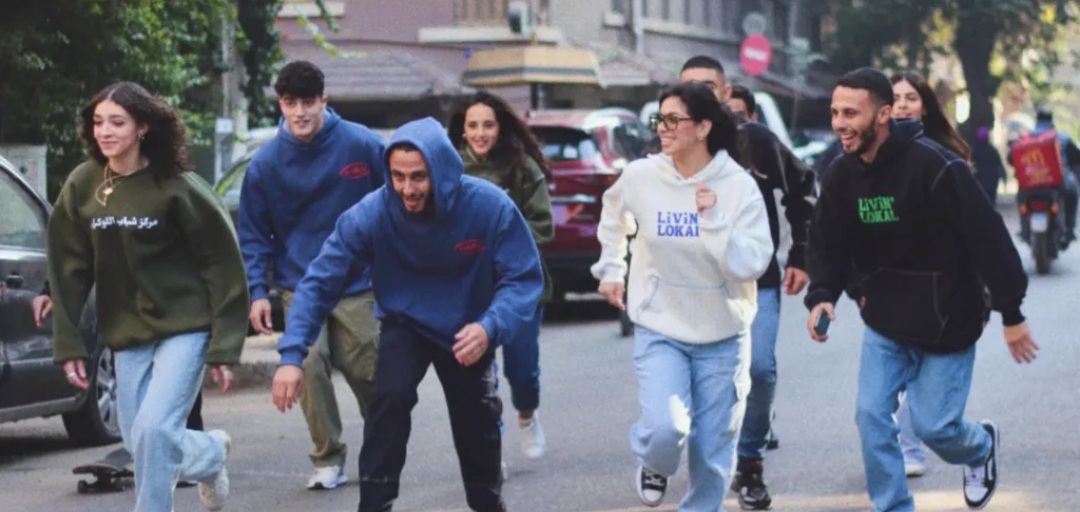

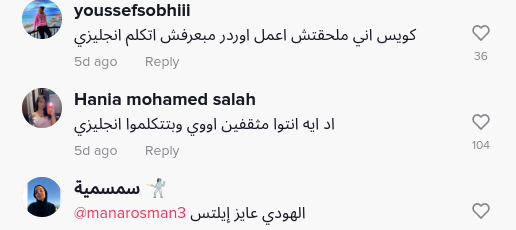


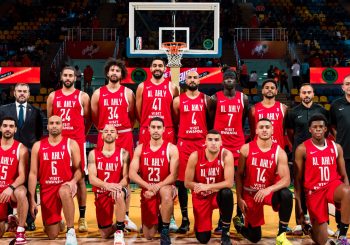
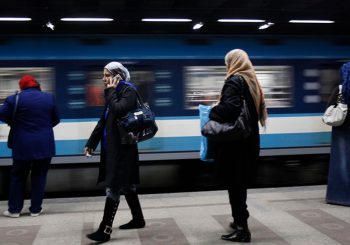
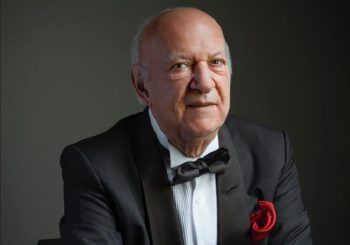
Comment (1)
[…] window.speakol_pid = 29 (adsbygoogle = window.adsbygoogle || []).push({}); Why an Egyptian Hoodie Brand Sparked a Heated Social Media Debate […]